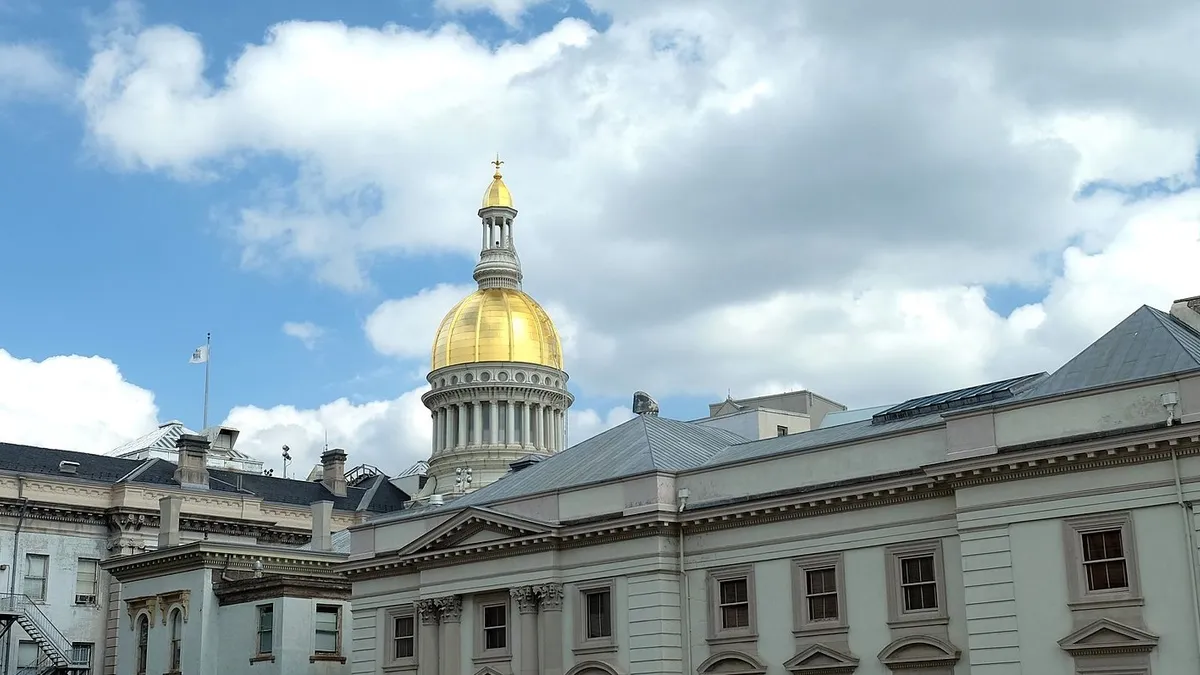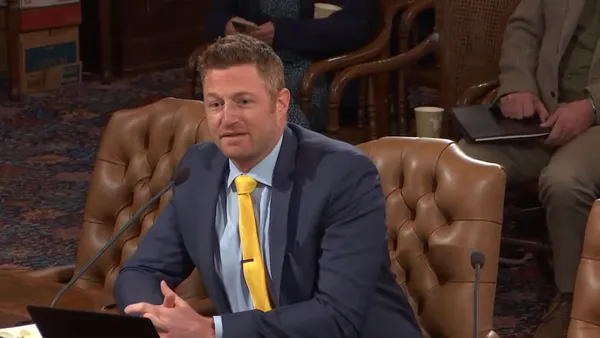Dive Brief:
- The New Jersey General Assembly passed a bill earlier this week – by a vote of 51 to 25 – that would require certain large-scale generators to separate organics if they are within 25 miles of an authorized recycling facility. The bill (A3726) directly followed requests made by Gov. Phil Murphy in a conditional veto of a prior iteration.
- Murphy's veto requested the removal of language that deemed landfills with gas-to-energy systems and incinerators (that used anaerobic digestion within four years) to be authorized destinations. Murphy also requested new language requiring any area recyclers be notified if generators seek disposal waivers.
- A corresponding bill (S1206) must now be taken up for a vote by the New Jersey Senate, which only has a handful of scheduled meetings left before its current session ends Jan. 14, 2020. This item has yet to appear on the Senate calendar and its original sponsor, state Sen. Bob Smith, could not be reached for comment.
Dive Insight:
After years of debate over various iterations of this policy, the New Jersey legislature put the bill on a surprise fast-track in June. There has long been dispute over whether landfill gas-to-energy (LGTE) should be counted as a form of authorized organics recycling – a point advanced by the many county-owned sites in New Jersey. That idea was unpopular with organics processing companies, environmental groups and incinerator operators.
New Jersey-based Covanta has declined to say in the past whether it plans to construct any organics recycling facilities (as stipulated in the late-stage amendment) and maintains it would prefer to see no exemptions in this policy at all. Covanta confirmed to Waste Dive it supports this latest version of A3726.
Others, such as the NJ Composting Council (NJCC), have been urging the legislature to pass this bill without any exemptions.
"(A3726) would provide much needed support to the organics recycling industry in New Jersey, both through the recycling mandate as well as the other provisions of the bill, which are designed to support the market for products and energy generated by food waste recycling facilities," said Matt Karmel, NJCC board member and attorney with the firm Riker Danzig, in a statement. "The expansion of food waste recycling that would result from the passage of A3726 presents a significant environmental, social, and economic opportunity for the Garden State."
This latest version still has notable detractors who argue that exempting LGTE systems is a logical and environmentally sound move. According to the New Jersey Association of Counties (NJAC), 10 counties have such systems and would be harmed by the loss of organic material they rely on for gas production.
In a summer letter to legislative leaders, NJAC Executive Director John Donnadio said passing Murphy's version would "cause irreparable harm to county LGTE facilities that have dedicated valuable property taxpayer dollars to cutting edge energy producing, recycling, and solid waste management activities."
A similar letter was also submitted on behalf of the Ocean County Landfill Corporation (OCLC), which runs a privately-owned site, calling the move "counterproductive" because LGTE is recognized as a renewable energy source at the state level and promoted by the U.S. EPA.
"Everybody’s concerned – 'food waste is going into landfill' – well there is a reason for all that. I think they don’t want to be bothered with the reasons, they just look at the political side of the issue," Theodore Schwartz, a partner at the firm Scarinci Hollenbeck who represents OCLC, told Waste Dive. “I just hope the bill doesn’t get posted and we can start all over again."
If the Senate takes no action, the bill would have to be re-introduced next session. If it is taken up, amendments are still possible. At the very least, the policy's January 2020 implementation date would need to be adjusted. A separate piece of legislation providing a two-year exemption for hospitals has also been introduced and could be a factor. If A3726 is passed (either in the form Murphy requested, or with a veto-proof majority), it will make New Jersey the seventh state with some version of an organics recycling requirement.















